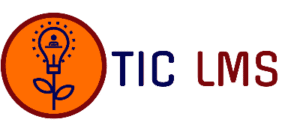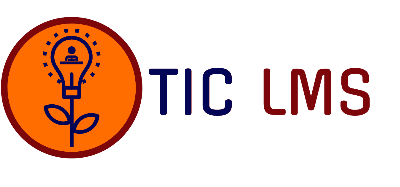2024 Government
- The party system that Nigeria operated in the aborted Third Republic is
- A. zero party system
- B. one party system
- C. two party system
- D. multi-party system
- Delegated legislation can be regulated through
- A. ministerial control
- B. legislative control
- C. executive control
- D. judicial control
- The main argument against the 1999 Constitution is that
- A. it was imposed by the military
- B. the executive have immunity clause
- C. It is expensive to operate
- D. It did not create additional states
- Which of the following is a basic feature of the rule of law?
- A. Secret trial of offenders
- B. Unlimited power of the executive
- C. Dependent judiciary
- D. Equality before the law
- The collective views of the citizens on a specific national matter is
- A. group opinions
- B. electoral opinion
- C. public opinion
- D. collective responsibility
- The productivity of public corporations is believed to be enhanced when there is
- A. increase in employment rate
- B. redeployment of staff
- C. increase in working hours
- D. less political interference
- NEPAD stands for
- A. New Economic Programmes for African Development
- B. New Partnership for Afro-Asian Development
- C. New Economic Partnerships for African Development
- D. New Partnerships for Africa’s Development
- Under the Hausa pre-colonial administration, the office of the Prime Minister is usually occupied by
- A. sarki
- B. waziri
- C. galadima
- D. madawaki
- Nigerian Ports Authority is an example of
- A. Civil Service
- B. Public Service
- C. Public Corporation
- D. Maritime Corporation
- An agent in which the state undertakes direct political socialisation is the
- A. church
- B. school
- C. peer groups
- D. mass media
- The Nigerian Youth Movement pursued its objectives through the use of
- A. protest
- B. newspapers
- C. radio
- D. strike actions
- Formation of political parties in Nigeria is one of the features of
- A. Lyttleton Constitution
- B. Macpherson Constitution
- C. Richards Constitution
- D. Clifford Constitution
- The commander of the army under the Hausa/ Fulani pre-colonial administration was
- A. waziri
- B. madawaki
- C. galadima
- D. maaji
- The rationale behind the adoption of a federal system of government in Nigeria is to
- A. promote the autonomy of states
- B. establish a powerful central government
- C. create more states
- D. promote unity in diversity
- Lawyers recruited into the civil service belong to the
- A. professional class
- B. administrative class
- C. executive class
- D. clerical class
- A naturalised citizen can lose his citizenship if found guilty of
- A. treason
- B. evading of taxes
- C. electoral violence
- D. loitering
- Shehu Shagari won the 1979 Presidential Election under
- A. UPN
- B. NPN
- C. NPP
- D. GNPP
- A form of government where the powers of the state is determined by the citizens is
- A. Monarchy
- B. Aristocracy
- C. Autocracy
- D. Democracy
- As a non-aligned state, Nigeria attended the second meeting of the non-Aligned Movement that took place in Cairo, Egypt in
- A. 1960
- B. 1963
- C. 1964
- D. 1965
- The power of prerogative of mercy rests with the
- A. legislature
- B. executive
- C. judiciary
- D. national assembly
- The judgement that ceded and transferred Bakassi legal title from Nigeria to Cameroon was delivered by
- A. ECOWAS Court of Justice
- B. Court of Justice of the African Union
- C. International Criminal Court
- D. International Court of Justice
- Absence of a Red-tape is a merit of
- A. federal government structure
- B. unitary structure
- C. confederal structure
- D. republican structure
- ECOWAS was established in
- A. 1970
- B. 1972
- C. 1975
- D. 1976
- The Nigerian Civil War was fought during the military regime of
- A. Aguiyi Ironsi
- B. Yakubu Gowon
- C. Murtala Muhammed
- D. Olusegun Obasanjo
- The rule of law is an essential ingredient of
- A. democracy
- B. aristocracy
- C. monarchy
- D. autocracy
- The fundamental objective guiding a nation’s foreign policy is
- A. national interest
- B. foreign interest
- C. African interest
- D. colonial interest
- The fundamental law containing the rules and principles governing a country is the
- A. convention
- B. constitution
- C. acts of parliament
- D. judicial review
- The electoral process in a representative government does NOT include
- A. free and fair elections
- B. free press
- C. independent electoral commission
- D. registration of birth
- The Aburi Accord was a popular phrase during the administration of
- A. Aguiyi Ironsi
- B. Murtala Muhammed
- C. Yakubu Gowon
- D. Olusegun Obasanjo
- The Commission that examines complaints of civil wrongs committed by government employees is
- A. Public Complaints Commission
- B. Civil Service Commission
- C. Economic and Financial Crimes Commission
- D. Judicial Service Commission
- Dual citizenship was a feature of the
- A. Portuguese colonial system
- B. German colonial system
- C. British colonial system
- D. French colonial system
- Which of these is a major challenge of public corporations in Nigeria?
- A. Political interference
- B. Political instability
- C. Shortage of staff
- D. Industrial dispute
- Lack of separation of power is a feature of
- A. presidential system
- B. cabinet system
- C. democratic government
- D. military government
- An economic system that encourages state ownership and control of the means of production is
- A. socialism
- B. communism
- C. fascism
- D. capitalism
- Which local government reform in Nigeria prevented traditional rulers from engaging in politics?
- A. The 1960 Reform
- B. The 1963 Reform
- C. The 1976 Reform
- D. The 1979 Reform
- Pressure groups are different from political parties because they
- A. analyse elections
- B. articulate interests
- C. aggregate interests
- D. contest elections
- A union of states with a common recognised authority is
- A. federal system
- B. unitary system
- C. representative system
- D. confederal system
- The famous Italian Fascist leader was
- A. Mao Tse Tung
- B. Kim Jung Un
- C. Joseph Stalin
- D. Benito Mussolini
- Aggregate view of individuals in a society is referred to as
- A. Public outcry
- B. people’s voice
- C. popular opinion
- D. public opinion
- The principle of civil service that guarantees the employment of public workers is
- A. neutralism
- B. anonymity
- C. permanence
- D. loyalty
- The fragmented nature of the Igbo pre-colonial political system qualified it to be described as
- A. centralised in nature
- B. ceremonial political arrangement
- C. acephalous in nature
- D. republican system
- Which of these colonial constitutions in Nigeria endured for the longest period?
- A. Richard
- B. Clifford
- C. Macpherson
- D. Lyttleton
- One of these is not an organ of the Commonwealth of Nations
- A. Assembly of Heads of State and Government
- B. Commonwealth Secretariat
- C. Conference of Prime Ministers
- D. Fund for technical cooperation
- The organs of ECOWAS do NOT include the
- A. Community Tribunal
- B. Council of Ministers
- C. Secreteriat
- D. Conference
- ECOWAS secretariat is located in
- A. Accra
- B. Abuja
- C. Niamey
- D. Cotonou
- Price stability in the international oil market is the major objective of the
- A. UN
- B. WTO
- C. OPEC
- D. AU
- Nigeria played fundamental roles in the creation of
- A. ECOWAS
- B. OPEC
- C. UN
- D. Commonwealth
- The most effective instrument adopted by Nigeria against the East-West Cold War in the 1960s was
- A. Good neighbourliness
- B. Africa as the centrepiece
- C. Anti-apartheid stance
- D. Non-alignment policy
- The bipolar world was a major factor for the formation of
- A. non-aligned movement
- B. technical aid corps
- C. NEPAD
- D. ECOMOG
- The June 12 election in Nigeria was annulled by the regime of
- A. Olusegun Obasanjo
- B. Ibrahim Babangida
- C. Muhammadu Buhari
- D. Yakubu Gowon

